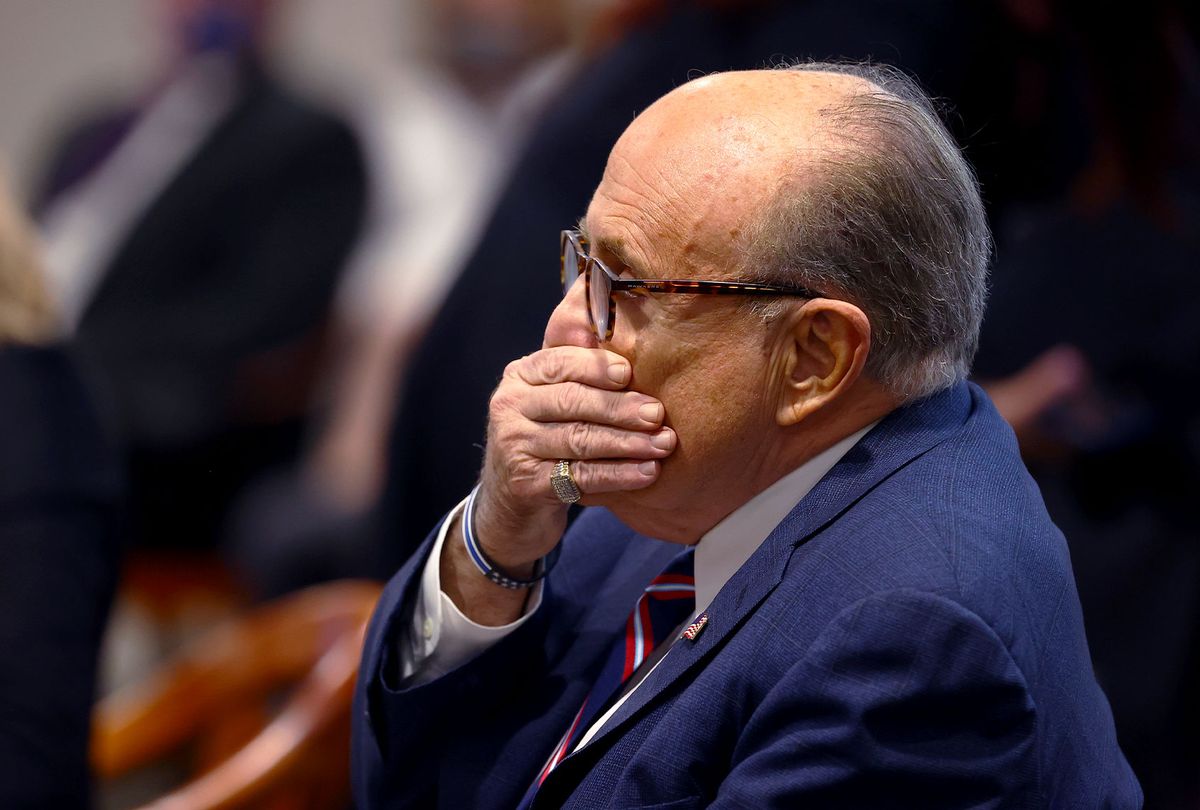A good week for the rule of law: With democracy in crisis, courts are doing their job

Three court-related events on Wednesday signal the ongoing power of law and truth, as well as their judicial enforcement of them. The strength of the courts is worth taking a moment to note — and to celebrate.
We might not ordinarily think that was worth bothering with, except for the exceptional threat our justice system faces. A heightened awareness of the importance of the rule of law has been brought to us courtesy of Donald Trump and his MAGA movement. More of us are active in defending courts as the place where facts matter.
“Political power will always sacrifice factual truth for political gain.” That warning came from Hannah Arendt, the famed 20th century political philosopher, according to Samantha Rose Hill, Arendt’s biographer.
Let’s look at this week’s most notable court-related events, all on Wednesday.
First, in Washington, federal district court Judge Beryl Howell ruled in a civil case that Rudy Giuliani, Donald Trump’s former personal attorney, was liable for defaming Georgia election workers Ruby Freeman and her daughter, Shay Moss.
In the aftermath of the 2020 election, as part of Giuliani’s effort to convince the nation that Trump had actually won in Georgia (which he clearly hadn’t), Giuliani falsely accused the two Black women of tampering with votes in Atlanta.
The D.C. court ruling was a default judgment: The judge entered it against Giuliani for his failure to comply with the judicial rules of discovery. He had failed, by all appearances intentionally, to provide documents that Freeman and Moss had sought to prove their case.
That Judge Howell enforced Giuliani’s breach with so serious a sanction sends a powerful message: Judges will respond forcefully if parties defy the judicial process for determining the facts.
The truth, and the American people, are the winners when courts are working effectively.
Second, in New York, state Attorney General Letitia James told a court that Donald Trump’s company had overstated his net worth by $2.2 billion in business dealings over the years. That court filing came in a civil case for fraud entitled People of the State of New York v. Donald Trump.
James sought a court determination that when that case goes to trial in October, the jury can be instructed, without having to decide itself, that Trump and the other defendants materially inflated the value of their assets in financial statements. They did so, James alleges, for the purpose of obtaining favorable loans and insurance arrangements.
Trump disagrees, unsurprisingly, and wants the case dismissed.
Of course we don’t know how the judge will rule. But for the moment, the bottom line appears to be that the truth of Trump’s business dealings and alleged deception will soon emerge.
Third, the effectiveness of courts in advancing the search for truth is evident in prosecution of Peter Navarro, a former White House economic adviser, for contempt of Congress. On Wednesday, D.C. federal district court Judge Amit Mehta ruled that Navarro cannot raise as a defense in his trial — which is set to begin next week — that Trump, as a former president, instructed Navarro not to testify.
Navarro had claimed that Trump’s assertion of executive privilege justified Navarro’s refusal to show up when subpoenaed last year by the House Jan. 6 committee. Mehta found that was not a legitimate defense.
Nearly a century ago, the Supreme Court ruled in another contempt of Congress that “a legislative body cannot wisely or effectively legislate in the absence of information respecting the conditions which the legislation is intended to affect or change.”
In that case Congress was investigating the Teapot Dome scandal, which involved the corrupt sale of oil rights in Wyoming. Witness Mally S. Daugherty, like Navarro, had defied a congressional committee subpoena for testimony.
Want a daily wrap-up of all the news and commentary Salon has to offer? Subscribe to our morning newsletter, Crash Course.
On Wednesday, the D.C. court similarly enforced the law against a witness who sought to obstruct Congress’ search for truth.
Of course we cannot and should not pretend that the search for truth and justice is on the march in every court in America. In early August, for instance three judges on the U.S. Court of Appeals for the Fifth Circuit decided that they knew better than the FDA’s experts when it came to scientific evidence about the safety of mifepristone, the abortion pill.
Nor does it seem as if the rule of law outweighs partisan agendas among all of America’s judges. On Wednesday, the Republican-controlled Texas Supreme Court reversed a lower court decision that had put a hold on SB 175, a bill passed by the Republican-dominated state legislature that singles out Harris County to eliminate its appointed election administrator position.
Harris County, with a population of more than 4.7 million, includes the city of Houston and is the most populous county in Texas, as well as the third most populous in the entire country. Voters there favored Joe Biden over Trump in 2020 by a margin of 13 percent.
Vigilance will always be required, especially given the precarious state of our democracy, to call out judges who appear to prioritize politics or ideology over the rule of law. Even so, we should stop to appreciate — and to defend — the majority of courts that continue to uphold the legal standards, and the search for truth, upon which democratic freedoms depend.
Read more
from Dennis Aftergut on law and politics

